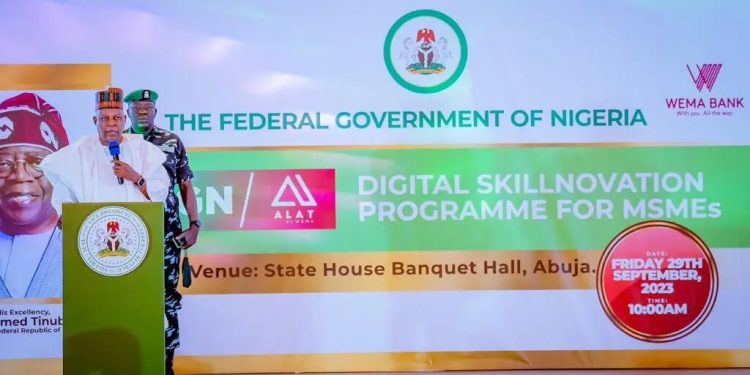The Federal Government of Nigeria has secured investment commitments totaling $32 billion under President Bola Tinubu’s administration, according to the Minister of Trade, Industry, and Investment, Doris Anite. This influx of foreign capital is attributed to the improved ease of doing business environment fostered by the government.
Key Highlights:
Investment Commitment: $32 billion across multiple sectors.
Job Creation: Over 16,000 jobs were created through the Small and Medium Enterprises Development Agency of Nigeria (SMEDAN) programs.
Revenue Generation: The Lagos International Trade Fair Complex generated N430 million in Q1 2024, a significant increase from N17.9 million in the same period the previous year.
SME Support and Funding Initiatives
The Federal Government has commenced the disbursement of the Presidential Conditional Grant Scheme (PCGS) to support micro, small, and medium-scale enterprises (MSMEs).
Program Details:
Agreements Signed: Three agreements with the Bank of Industry (BOI) totaling over N200 billion in funding.
N75 billion MSMEs Fund: To support micro, small, and medium-scale enterprises.
N50 billion Presidential Conditional Grant Scheme: To cushion the impact of fuel subsidy removal.
N75 billion Manufacturing Sector Fund: To support businesses in the manufacturing sector.
Specific Objectives:
MSMEs Fund Address high production costs due to infrastructure deficiencies.
PCGS Provides grants to mitigate the economic impact of fuel subsidy removal.
The Manufacturing Sector Fund reduces production costs and supports the manufacturing sector’s growth.
Implementation Strategy:
Disbursement: Phased strategy with the first significant disbursement scheduled for April 19, 2024.
Beneficiaries: At least 1,000 nano business owners in each of the 774 local governments and six council areas in the FCT, focusing on women and youth.
Sectors Targeted: These include trade, food services, ICT, transportation, artisans, creatives, and other sectors identified by the ministry.
Impact and Future Plans
The investment commitments and support programs aim to:
Economic Revitalization: Boost the economy by supporting vulnerable businesses and creating jobs.
Employment Preservation: Sustain existing jobs and create new employment opportunities.
Youth Empowerment: Target youth and women entrepreneurs to foster inclusive growth.
Reduction of Production Costs: Help businesses manage rising production costs due to infrastructural deficiencies.
The Federal Government’s initiatives, backed by strategic partnerships and effective implementation, are set to significantly impact Nigeria’s economic landscape, ensuring sustainable growth and development across various sectors.










